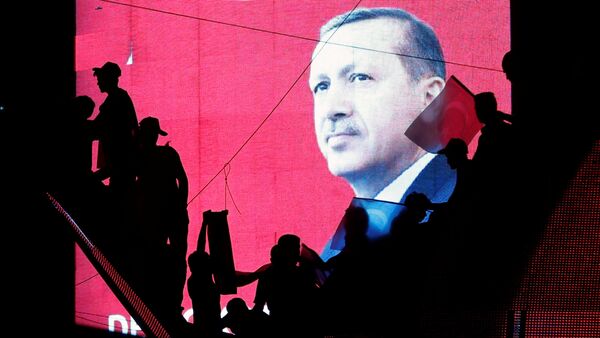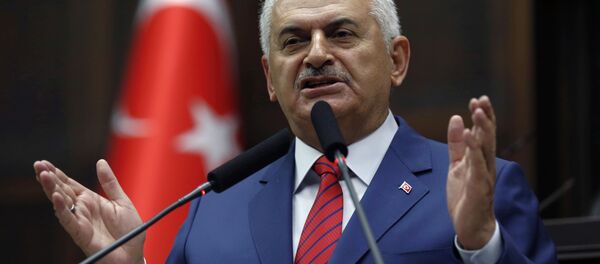After Erdogan’s plane landed at the Ataturk Airport in Istanbul, the president spoke before thousands of his supporters. He labelled the attempted coup as betrayal and pledged to begin purges in the armed forces.
"No doubts, Erdogan will tighten the screws because an attempted coup was staged and it wasn’t supported by the people. This could justify decisive actions," Alexei Malashenko, an expert at the Carnegie Moscow Center think-tank, told RBK.
Erdogan is a charismatic leader and his charisma requires a tough response to the coup, he added.
One the most notable trials under Erdogan’s rule was the case of an attempted military coup by the Ergenekon, an alleged clandestine ultra-nationalist organization. In 2013, 16 people, including former Chief of the Turkish General Staff Ilker Basbug, were imprisoned for life for the 2013 attempt of a military coup. Military commanders, politicians, teachers and journalists also received different sentences in connection with the case.
When the putsch is finally quelled Erdogan will be free to go with a crackdown, said Vladimir Avatkov, head of the Center for Eastern Studies, International Relations and Public Diplomacy. Now, Erdogan will be able to implement his plan to establish super presidential rule in Turkey.
According to the Turkish constitution, the prime minister has more powers than the president. Erdogan was not allowed to become prime minister for the fourth time. In 2014 he organized the first direct presidential election in Turkey and won it. Since then, he has repeatedly called for a constitutional reform to give more powers to the president.
According to him, the military remained the last institution that could interfere in politics and curb Erdogan’s authoritarian ambitions. For example, last year it was the military command that were against sending Turkish troops to Syria.
Erdogan has long wanted to clear the armed forces command of opposition personnel. Now, the problem is almost resolved. On the first day after the coup, over 2,000 officers and soldiers were detained or discharged.
The government’s tough measures will be justified by voters, the analyst wrote. After the attempted coup, public support for Erdogan has increased so the constitutional reform could be passed by the parliament, without a referendum.
"All reforms Turkey has been carrying out to join the European Union will be legally abolished. There will be a crackdown on opposition, especially on Kurds. Independent media will be controlled by the government. The authorities will also tighten rules for businesses. Finally, the civil society will have minimal influence on politics," Saetov suggested.
He suggested two possible scenarios for Turkey after the attempted coup.
First, if Erdogan backtracks from his super presidential ambitions and allows a new constitution guaranteeing liberal democratic norms the domestic situation in Turkey would significantly improve in the near future.
On the other hand, if he and his Justice and Development Party (AKP) call for snap elections to secure an absolute majority, pushes for a more authoritarian constitution and oppresses minorities, things will only get worse for Turkey.
"Unfortunately, the second outcome seems more likely at the moment," Kayaoglu wrote.






